‘Black Mirror,’ ‘Westworld,’ and 13 Other Genre Shows That Are Tackling Issues Well
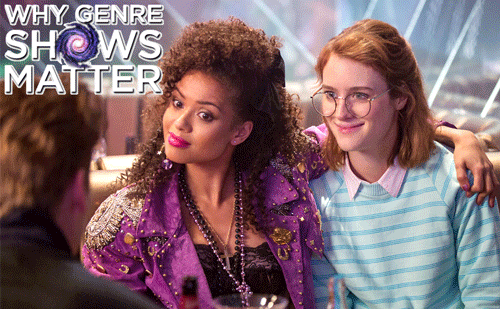
Leading up to the 20th anniversary of the March 10, 1997, premiere of Buffy the Vampire Slayer, Yahoo TV is celebrating “Why Genre Shows Matter” and the history of how these shows have tackled universal themes (such as how much high school sucks) and broader social issues.
“Name a current show you think is tackling an issue well” — that’s another question we posed to more than 30 executive producers of current sci-fi/fantasy series who agreed to take part in our Why Genre Shows Matter survey over the last month, either by email or phone.
Not surprisingly, the top response was the Charlie Brooker-created anthology series Black Mirror (streaming on Netflix), with many paying it a similar compliment…
Eric Kripke (NBC’s Timeless)
I’m obsessed with Black Mirror. Its exploration of modern anxieties and technologies, pushed to their sometimes logical, sometimes metaphorical end, makes it the first worthy successor to Twilight Zone I’ve seen.
Drew Goddard (NBC’s The Good Place)
Black Mirror. Even the title of the show is a mission statement. Not since The Twilight Zone has a show managed to confront the issues of its time with such violent brilliance.
Nick Antosca (Syfy’s Channel Zero)
How could I say anything but Black Mirror? No show since Twilight Zone has done a better job of identifying disturbing tendencies in society and taking them to their most horrifying but utterly logical extremes.
Michelle Lovretta (Syfy’s Killjoys)
Black Mirror is a bit bleak for my personal sanity, but Lord is it endlessly clever. I really admire its merciless examination of the ways technology is changing what it means to be human and how we connect (and disconnect) with one another.
Adam Horowitz and Edward Kitsis (ABC’s Once Upon a Time)
Black Mirror. Its warnings to us about the dangers of technology we find deeply resonant. While it has brought so much good to the world, this show deftly and dramatically continues to warn us of the dangers of being consumed by our “screens” and “gadgets” — and these cautionary tales, told so entertainingly and sometimes terrifyingly — at the end remind us of the importance of preserving and celebrating real human connection.
Emily Andras (Syfy’s Wynonna Earp)
I love the way Black Mirror is examining our increasingly complex relationship with technology. That show always surprises me and feels daring and fresh.
Robert Cooper (BBC America’s Dirk Gently’s Holistic Detective Agency)
Black Mirror is so exciting not just because it is so consistently well done, but because of the way it explores how technology is changing our lives — something we don’t seem to be as aware of as we really, really should be.
Ryan Condal (USA’s Colony)
I can’t think of a better current show than Black Mirror. Charlie Brooker puts on a writing-to-theme clinic in every episode he makes. If I had to pick just one, it would be the episode called “Nosedive,” which brilliantly dramatizes and satirizes our sycophantic addiction to social media and obsession with being “liked” by digital avatars whom we’ve never met.
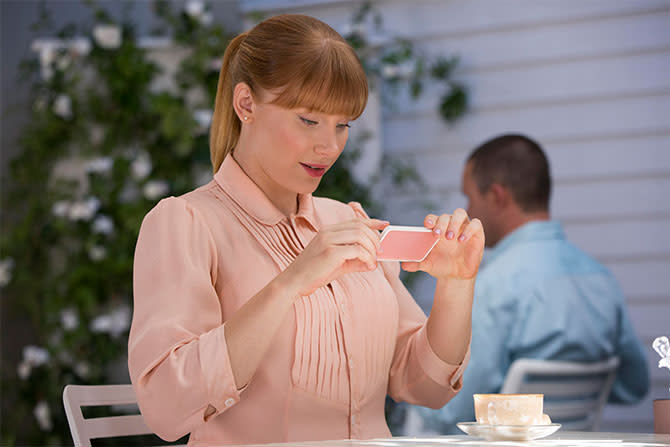
The second most popular pick: HBO’s Westworld.
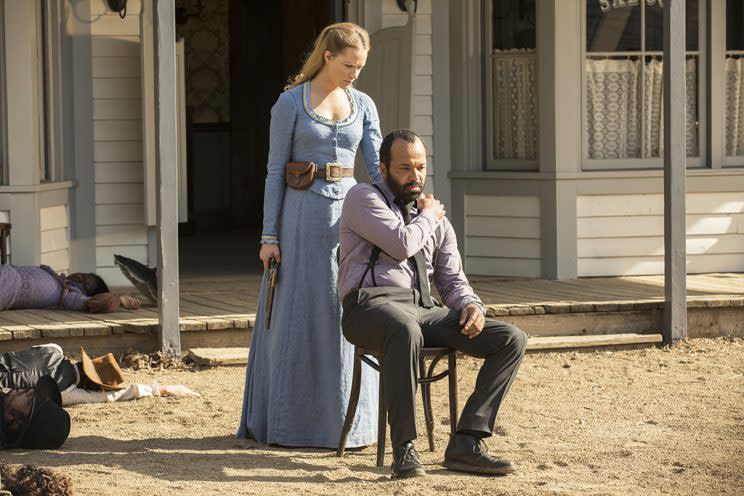
Ronald D. Moore (Starz’s Outlander)
I think Westworld is exploring a lot of really interesting territory in terms of the nature of consciousness and what it means to be human.
Jeff Davis (MTV’s Teen Wolf)
I’m pretty enamored of Westworld. The way in which they explored what it means to be human, to be objectified, to wonder about what it means to have a soul or to be truly alive is what I think made it more than just good science fiction, but thoughtful, even philosophical, drama.
Albert Kim (Fox’s Sleepy Hollow)
I think Westworld has done a great job of exploring the question of what makes us human, and explores the boundaries of where our humanity begins and ends. It gets into a lot of the same issues that Ex Machina did: If an entity looks like a human, acts like a human, and has emotions like a human, shouldn’t we consider it human? These kinds of existential questions are on people’s minds a lot more lately, given how science and technology have been changing our everyday experiences. After all, am I my Twitter feed, or am I no better than a bot?
Ken Woodruff (Fox’s Gotham)
I thought Westworld tackled some intriguing issues that affect us today, and will continue to do so in the future. For example, the pace of technological process is so fast, we’re never afforded the time to stop and question whether or not the advancements we’re making are in our best interests … or even safe.
Other shows singled out…
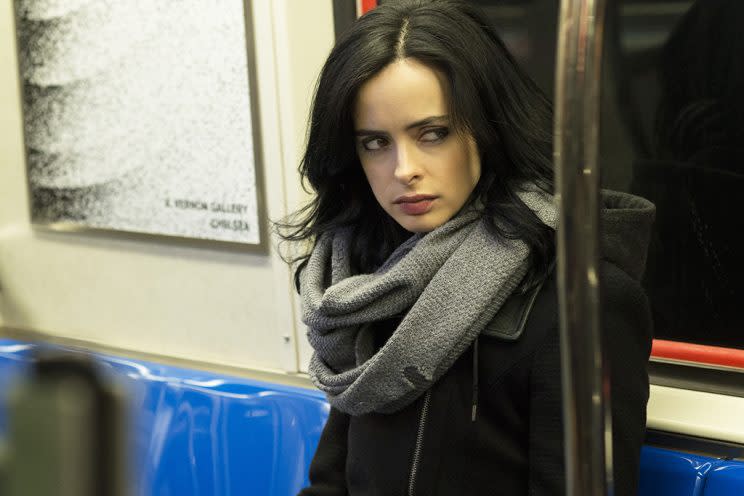
J. Michael Straczynski (Netflix’s Sense8)
I think Jessica Jones has done a great job of bringing the topic of PTSD into the general conversation, and opening up the genre to lead characters who are broken in unconventional ways. Certainly it’s started a conversation that has led to a lot of people who suffer from this condition talking openly about their problems.
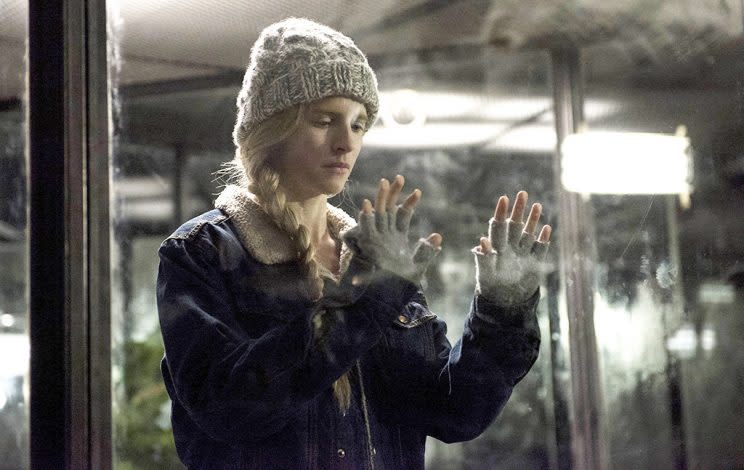
Melissa Rosenberg (Netflix’s Jessica Jones)
[SPOILER ALERT!]The OA is completely original. All the sort of conventions of storytelling that you’re not supposed to do, they do them and they work! It’s really breaking barriers and telling very unusual stories. She’s essentially been kidnapped and kept imprisoned for 7 years. There is quite the metaphor in just her being captured in this cell with other people with whom she can’t have physical contact, but there’s this emotional connection that happens. They’re taking on all sorts [of issues], so it’s not about any one of them. It’s about where true power comes from. It’s just beautiful, beautiful storytelling, beautiful character exploration, and it’s utterly unique.
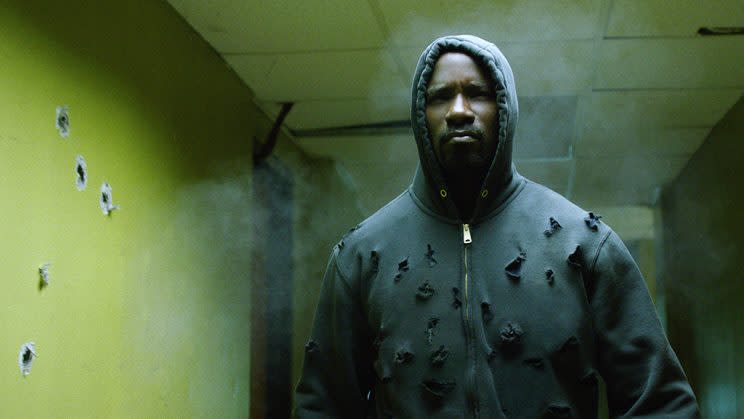
Marco Ramirez (Netflix’s Daredevil)
I think the way my man Cheo Coker put Luke Cage in a hoodie as a tribute to Trayvon Martin was pretty exceptional.
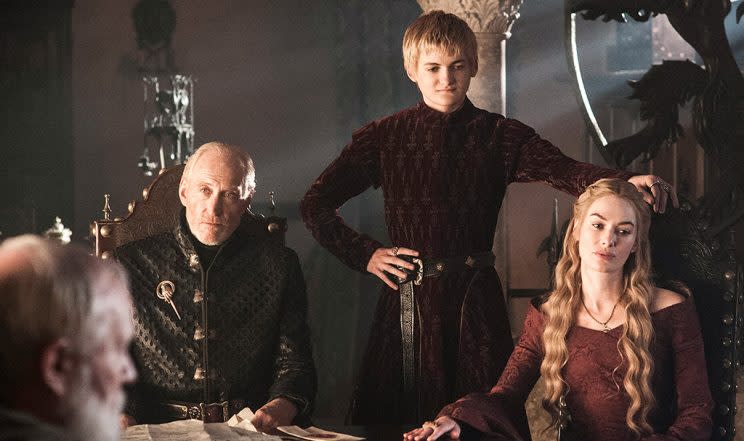
Cheo Hodari Coker (Netflix’s Luke Cage)
One of my favorite scenes [in Game of Thrones] is when [Tywin Lannister] is explaining why he did the Red Wedding and essentially what he’s saying is, ‘Is it better that I kill people at a dinner party, or do you want me to send everybody to war and risk our entire army?’ And yes, he’s talking about what’s happening in terms of that world, in terms of Westeros and all that stuff, but really, the metaphor is drone warfare. So the fact that you can have a fantasy show that at the same time is talking very topically about what has been happening in real-world events — I mean, that’s amazing!”
Related: Why Genre Shows Matter: ‘Luke Cage’ Showrunner Cheo Hodari Coker on Embracing Exploitation
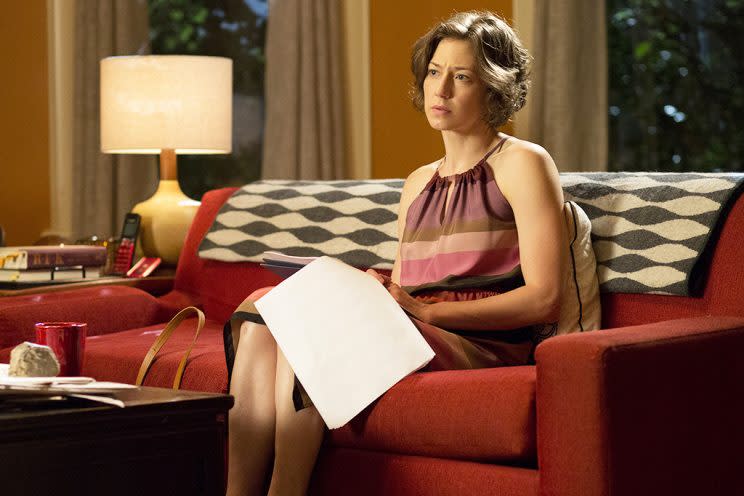
Julie Plec (The CW’s The Vampire Diaries and The Originals)
I love themes of loss and grief and a sense of “What does life mean?” and “Where are we all going?” — and The Leftovers does that times 1,000. They handle that so magnificently and so intelligently.
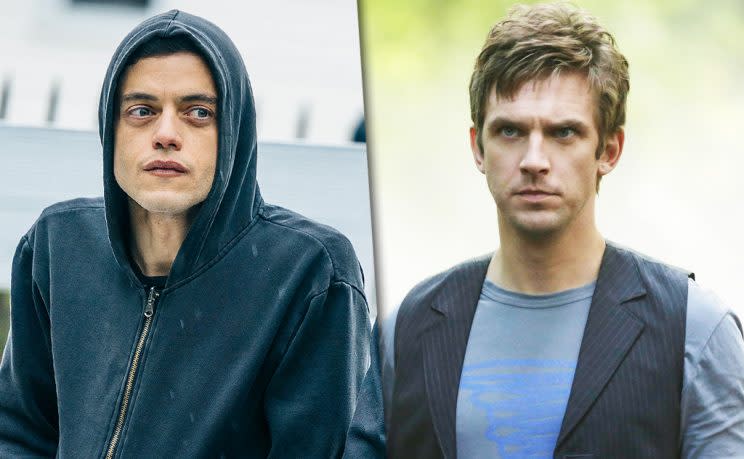
Damon Lindelof (HBO’s The Leftovers)
I think both Mr. Robot and Legion do a great job of tackling mental illness by Trojan-horsing that theme inside a different genre entirely.
Bryan Fuller (Starz’s American Gods)
Legion knocked my socks off. I love that it’s tackling mental illness with a superhero metaphor.
Brian Minchin (BBC America’s Doctor Who)
Mr. Robot! The show is genius. I absolutely love how it captures the loneliness of our digital age. I’m mesmerized by those brilliant characters, so connected, yet so alone.
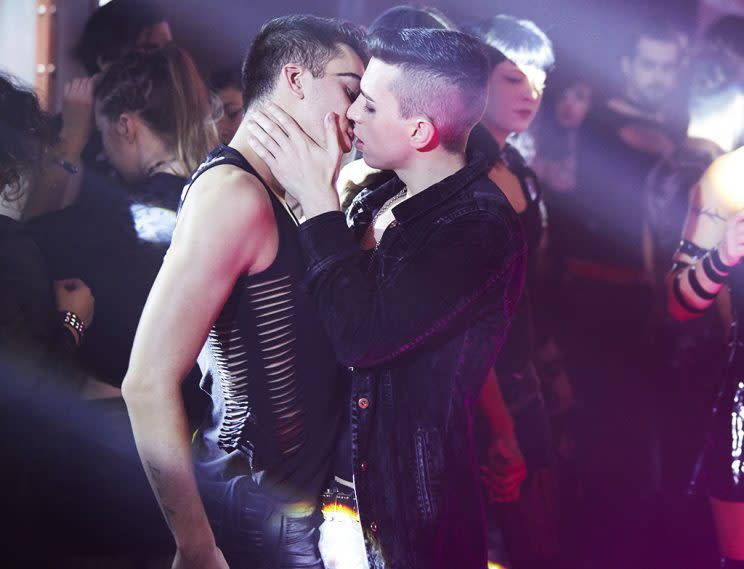
Terry Matalas (BBC America’s 12 Monkeys)
Orphan Black for its wonderful LGBT relationships. Stellar cast and characters.
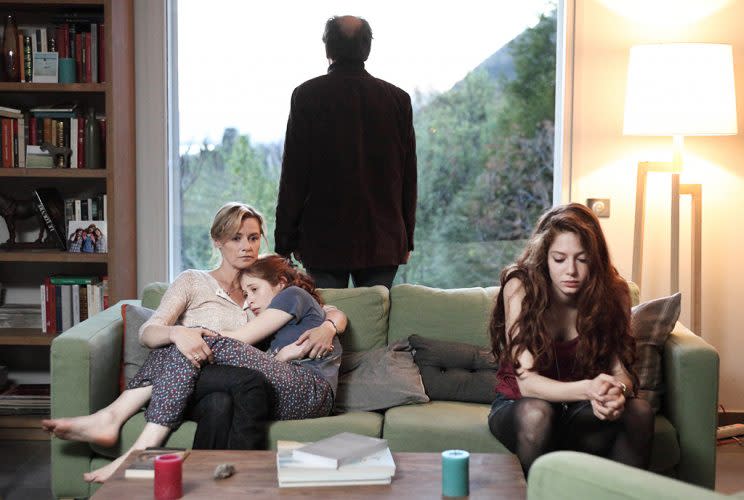
Dana Gould (IFC’s Stan Against Evil)
The French series Les Revenants (Netflix) is, in my opinion, the best series of its kind since Twin Peaks. As technology divides our culture into smaller and smaller groups, Les Revenants paints a picture of an isolated village in France divided into the living and the dead. It’s no accident that the more estranged these groups become, the more the village literally submerges.
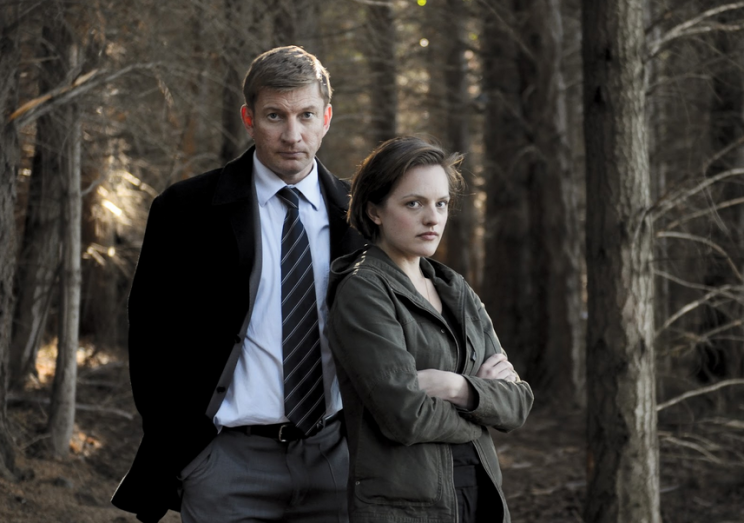
Mark Fergus (Syfy’s The Expanse)
“I was really blown away by Top of the Lake. It’s one of the most unusual and beautiful thrillers I’ve ever seen. It allowed Jane Campion’s voice to come through as a storyteller so strongly via a very strong framework of a conventional cop story. I think that was a really impressive way to tell her view of the world, which is like nobody else’s.”
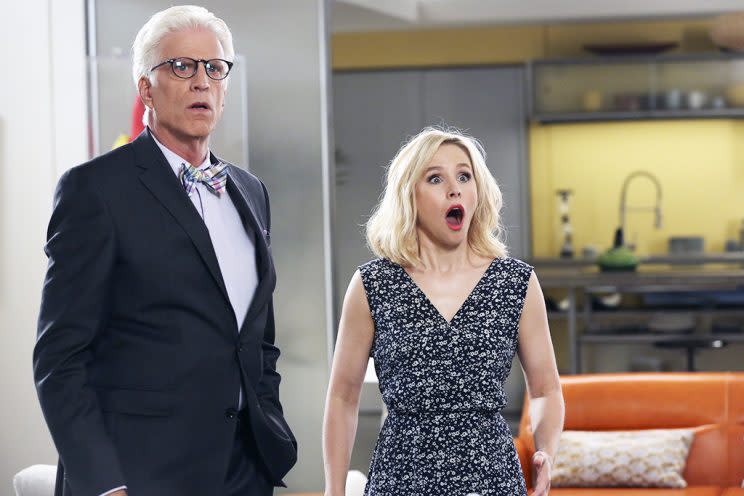
Joe Henderson (Fox’s Lucifer)
The Good Place is a genre show sort of, right? I feel like they’re playing in a similar world as us — the ideas of redemption, defining good and bad, and turning both those ideas on their heads — but in such a different, amazingly funny way. The humor hides the depths of morality they explore and subvert.
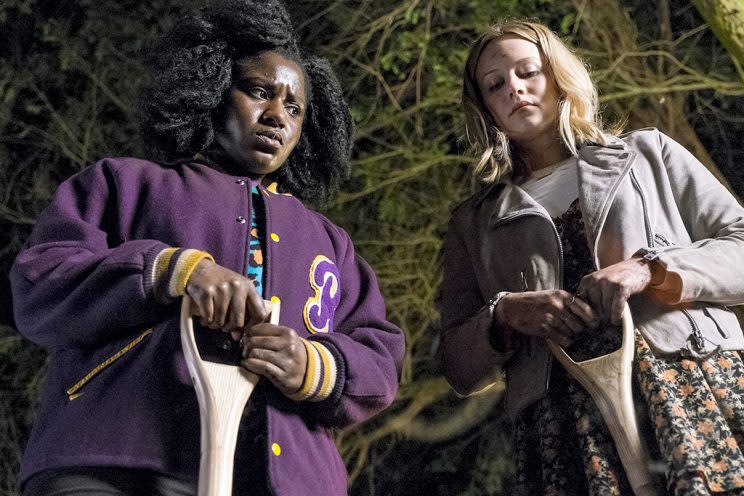
Sera Gamble (Syfy’s The Magicians)
This is probably a premature recommendation, but I was just surfing Netflix, browsing around, looking for something the other day, and I watched the first episode of a British show called Crazyhead. It feels very much a direct descendant of Buffy in a way that was kind of delicious, and so I plan to keep watching that one. It’s supernatural and it’s funny, but it is also about these two girls that don’t fit in and think they are crazy.
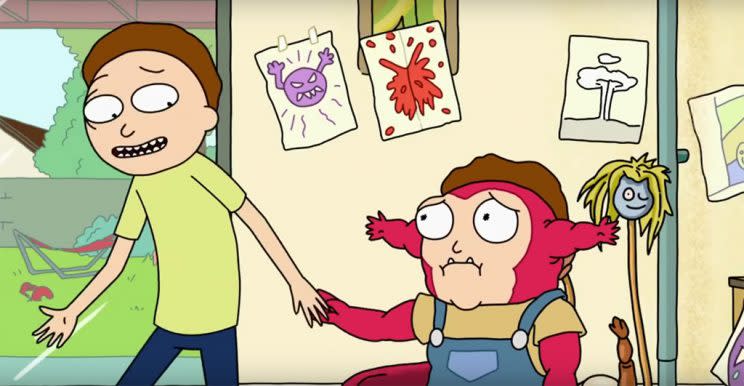
David Benioff and D.B. Weiss (HBO’s Game of Thrones)
Rick and Morty does a great job examining the difficulties of boy/robot love.
Read more from Yahoo TV’s “Why Genre Shows Matter”:
